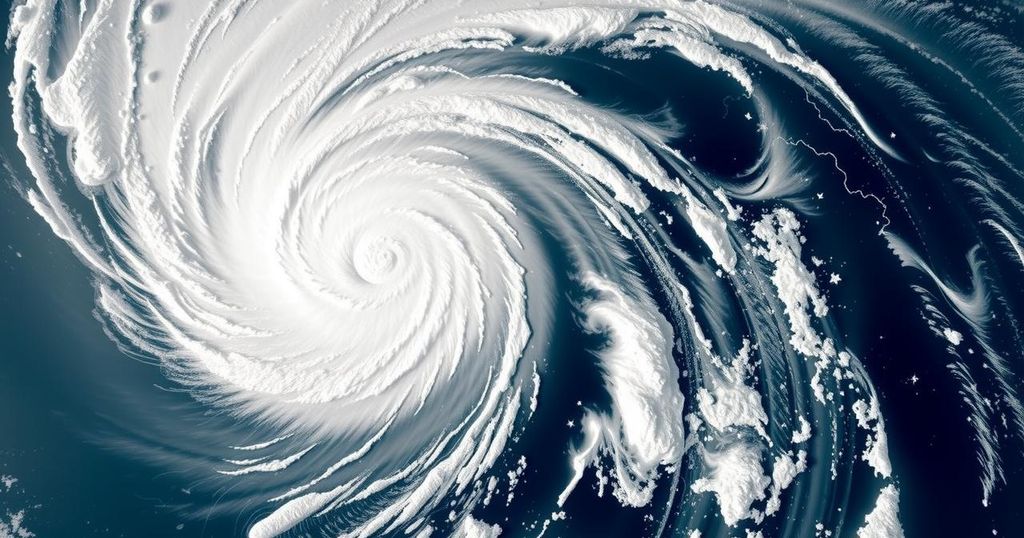Devastation in Mayotte as Cyclone Chido Approaches Eastern Africa
Cyclone Chido has wreaked havoc in Mayotte as it approaches eastern Africa, causing severe damage and power outages. Prefect Francois-Xavier Bieuville described this cyclone as the most destructive since 1934. The cyclone is expected to affect Mozambique and has raised alerts in Comoros, where safety measures have been intensified. The threat of flooding looms across the region as climate change exacerbates cyclone severity.
Cyclone Chido has caused significant destruction in the French territory of Mayotte, located in the Indian Ocean, as it progresses towards eastern Africa. With wind speeds exceeding 220 kilometers per hour, the cyclone has severely affected the region, leaving many without power and damaging numerous structures. Mayotte Prefect Francois-Xavier Bieuville disclosed that the island is experiencing the most devastating cyclone since 1934, leading to substantial losses for residents. Currently, the highest alerts have been downgraded to facilitate rescue operations, although a red alert for the general population remains in effect. Emergency services are mobilized to address the aftermath and assist those affected.
The neighboring nation of Comoros is also facing the brunt of Cyclone Chido, prompting authorities to initiate heightened safety measures. Several fishermen are reported missing, and the government has grounded maritime activities while closing major airports and schools. As the cyclone continues its path towards Mozambique, forecasts suggest that northern provinces may be significantly impacted, with approximately 2.5 million individuals potentially affected. Recognizing the historical precedence of devastating cyclones in this region, neighboring countries such as Malawi and Zimbabwe are also on alert and preparing for possible flooding and evacuations.
With cyclone season occurring annually from December to March in the southeastern Indian Ocean, the recent trends show an alarming increase in the intensity of these storms, largely attributed to climate change. In recent years, past cyclones have resulted in substantial loss of life and extensive humanitarian crises, particularly in impoverished nations that contribute minimally to climate change yet face its dire consequences.
Cyclones in the Indian Ocean, particularly during the cyclone season from December to March, have become increasingly destructive, often leading to catastrophic consequences. Climate change is believed to exacerbate these phenomena, increasing their frequency and intensity. Countries such as Mozambique, Malawi, and Zimbabwe have previously experienced devastating cyclones, resulting in significant fatalities and displacement. The infrastructure and readiness of these nations are frequently tested during cyclone season, putting their limited resources under strain as they cope with the aftermath of these natural disasters. Historically, cyclones have also triggered secondary health crises, such as cholera and malaria outbreaks, further complicating recovery efforts.
In conclusion, the destructive passage of Cyclone Chido through Mayotte and its anticipated landfall in Mozambique underscores the increasing severity of tropical cyclones in the Indian Ocean, influenced by climate change. The extensive damage inflicted on Mayotte has prompted emergency responses while neighboring regions brace for similar impacts. The cycle of destruction endured by these affected communities highlights the urgent necessity for comprehensive disaster preparedness and climate resilience strategies to mitigate the humanitarian impact of such events in the future.
Original Source: www.voanews.com




Post Comment